Niio Editorial
As we reach the end of 2022, we look back at a very busy year, and forward to an even more intense 2023. In this series of posts, we have selected some of our favorite artcasts, artists, artworks, articles, and interviews. They outline an overview of what has happened in Niio over the last months and highlight the work of artists and galleries with whom we are proud to collaborate. However, there is much more than what fits in this page! We invite you to browse our app and discover our curated art program, as well as our editorial section.
Five interviews from 2022
Interviews are an important part of our Editorial content, because we believe that artists, gallerists, and curators have important things to say, and we want their words to reach our readers. We are privileged to live in a time when it is possible to connect with people around the world and have a conversation with them, learn from their experience and get a first person account of their creative process. This year we have spoken to wonderful and generous art professionals who have spent time with us explaining their work and their views on digital art, sometimes at a distance, and other times visiting their studios. These conversations are certainly worth reading for anyone who wishes to understand how art is created nowadays.
We have chosen five interviews from almost 40 conversations published in our Editorial section this year. Click on the titles to read each article.
Steven Sacks, founder of bitforms gallery
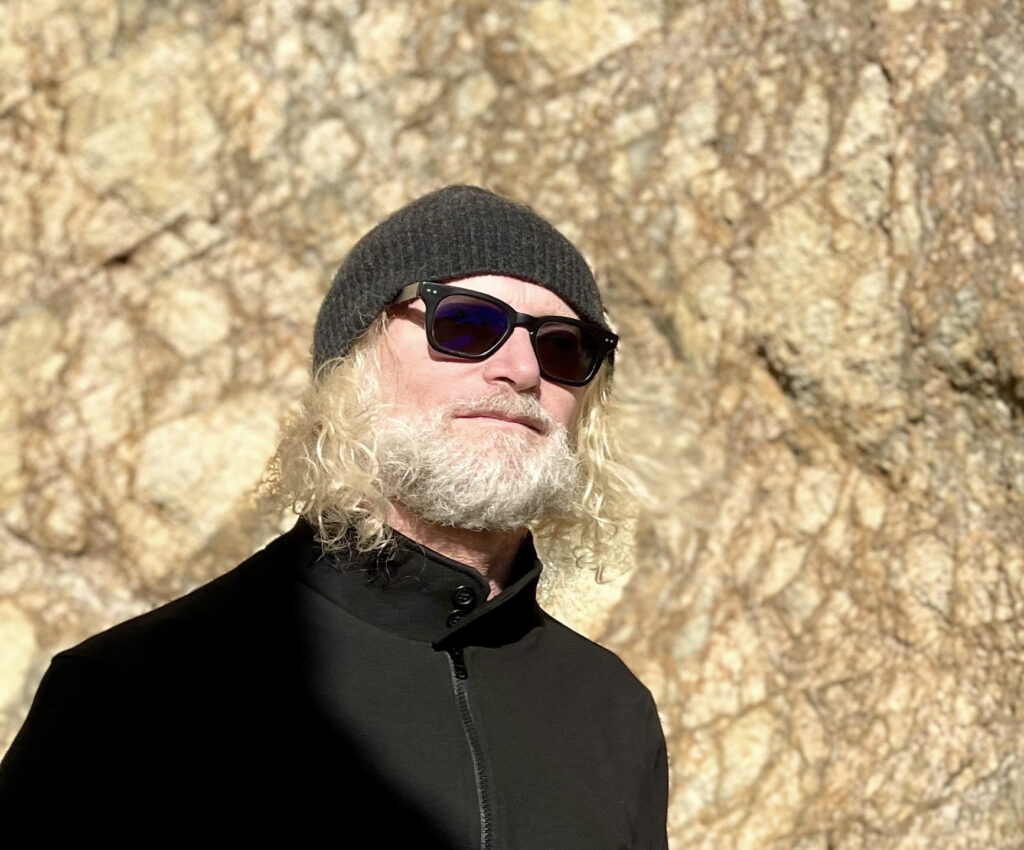
Steve Sacks founded bitforms in New York in November 2001, at a time when digital art was getting attention among the contemporary art institutions in the USA as well as Europe. Major exhibitions held that same year, such as Bitstreams and Data Dynamics at the Whitney Museum of American Art in New York and 010101: Art in Technological Times at the San Francisco Museum of Modern Art were particularly inspirational for him.
Photo: Joanna Holloway
Over two decades, bitforms has achieved an influential position in the contemporary art market as a gallery devoted to digital art, participating in major art fairs and representing some of the most recognized artists in this field, such as Manfred Mohr, Rafael Lozano-Hemmer, Casey Reas, Quayola, Auriea Harvey, Refik Anadol, Gary Hill, Claudia Hart, Beryl Korot, Marina Zurkow, Daniel Canogar, Daniel Rozin, Siebren Versteeg and many others. On the occasion of the third series of Niio Commissions, which was curated by Sacks, we sat down with the gallerist to discuss his views on the development of the contemporary art market and the role that digital art is now playing in it.
“Niio gives my artists more exposure and it’s much easier for collectors to view and manage their artworks”
Steven Sacks
Marina Zurkow, artist
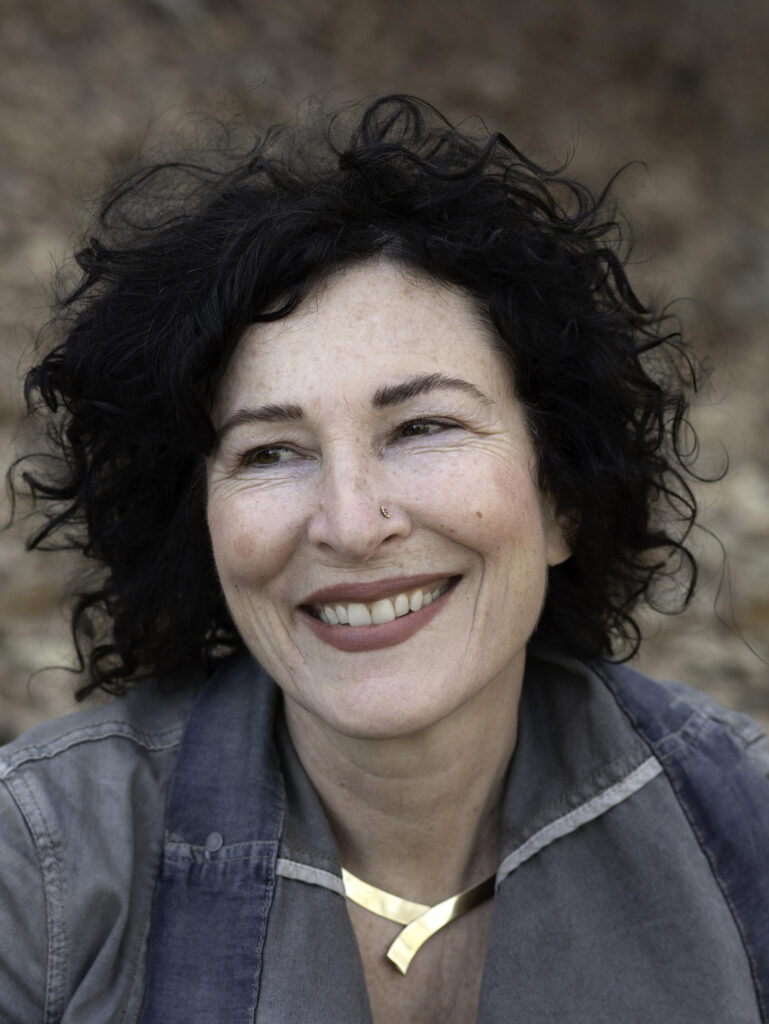
Marina Zurkow’s work explores the relationship between nature, culture, and society, focusing on what she describes as “wicked problems,” those issues that reveal our abusive interactions with the natural environment and our difficulty to understand it beyond our human-centric, capitalist-driven views of the world around us.
A transdisciplinary artist, she works with experts from different fields to create a wide range of artistic practices that includes video art, installations, and public participatory projects. Currently, she is working on the tensions between maritime ecology and the ocean’s primary human use as a capitalist Pangea.
Following the release of two new artworks commissioned by Niio, we spoke with the artist about her latest work and her commitment to raise environmental concerns through her art.
“There are many roles that artists occupy in terms of addressing environmental atrocities. I don’t feel like any one tactic is any better than any other. It’s all crucial.”
Marina Zurkow
Daniel Canogar, artist
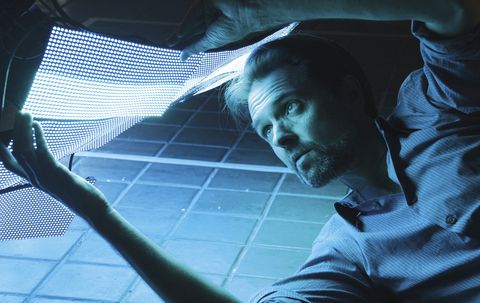
The leading artist in the Spanish media art scene, Daniel Canogar‘s influential work spans almost four decades and a wide range of media from video art installations to generative software art. On the occasion of his solo artcast Liquid Data, our Senior Curator Pau Waelder interviewed him in his studio in Madrid.
“My work as a media artist is about trying to think of data, of sculpture, of the history of art, in a synchronous way where it all comes together.”
Daniel Canogar
Tamiko Thiel, artist
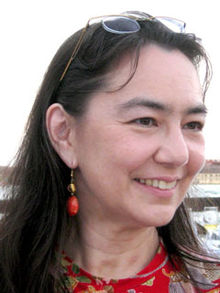
Tamiko Thiel is a pioneering visual artist exploring the interplay of place, space, the body and cultural identity in works encompassing an artificial intelligence (AI) supercomputer, objects, installations, digital prints in 2D and 3D, videos, interactive 3d virtual worlds (VR), augmented reality (AR) and artificial intelligence art.
We had a conversation with the artist on the occasion of the launch of her solo artcast Invisible Nature curated by DAM Projects, in which she discusses the evolution of technology over the last three decades, her early AR artworks and her commitment to create art that invites reflection.
“What is truly the value of an artist making work about a subject such as these is that the art work can be exhibited time and time again, in different places around the world.”
Tamiko Thiel
Patrick Tresset, artist
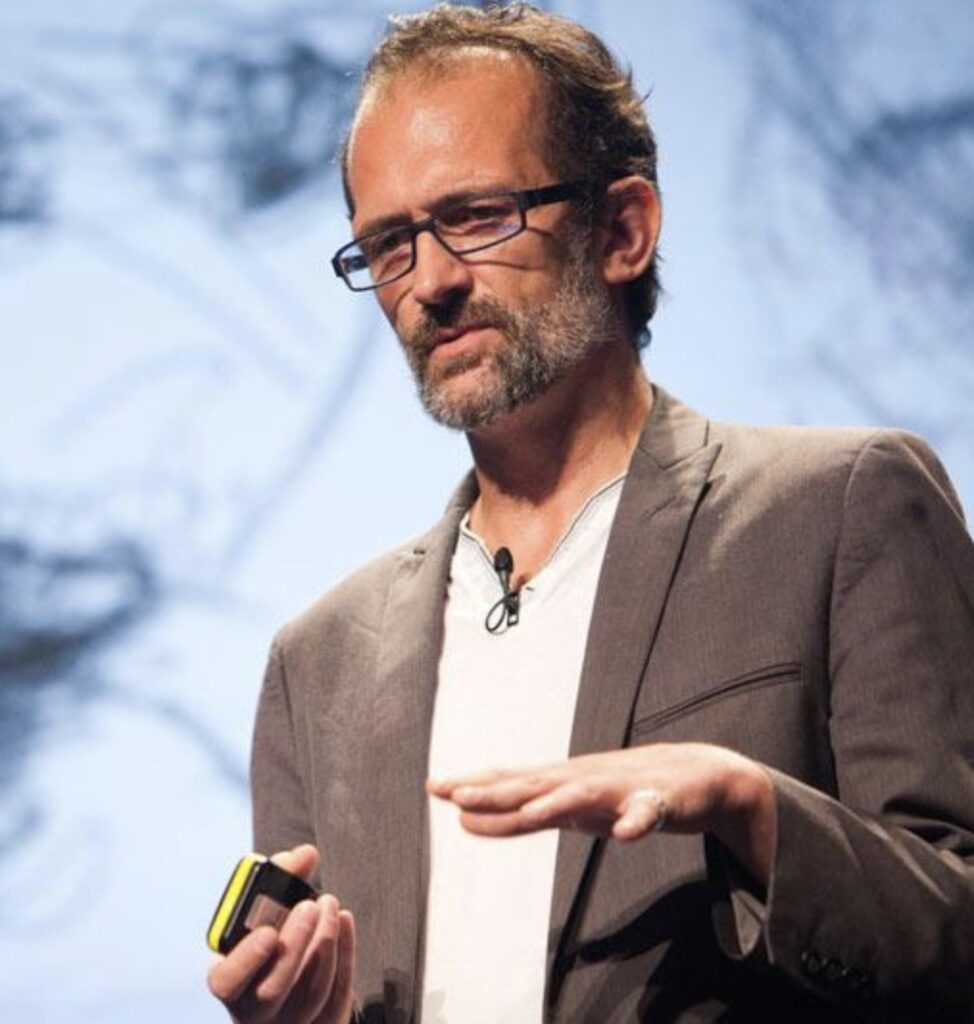
Patrick Tresset is an artist who explores a form of mediated creation in which his drawing style is transferred to a set of robotic drawing machines or applied to video footage to create artworks that are curiously algorithmic and spontaneous at the same time. He is also the co-founder of alterHEN, an eco-friendly NFT platform and artist community whose artists have participated in a previous artcast on Niio. Tresset has also presented his series Human Study in a solo artcast launched recently.
Our Senior Curator Pau Waelder interviewed him in his studio in Brussels on the occasion of his visit to the Art Brussels art fair. They discussed his work and the series that originated from an exhibition in Hong Kong that he had to remotely orchestrate during lockdown.
“So there is this weird thing with control, because in the beginning I have control, but then when the robots start, I don’t have any control. And that leads to an interesting form of spontaneity.”
Patrick Tresset
